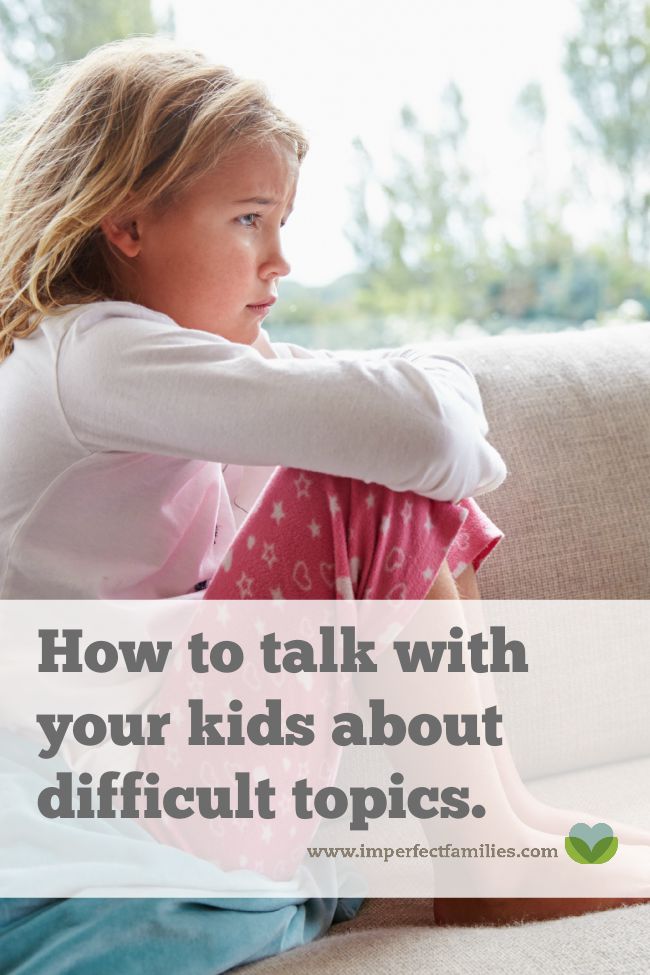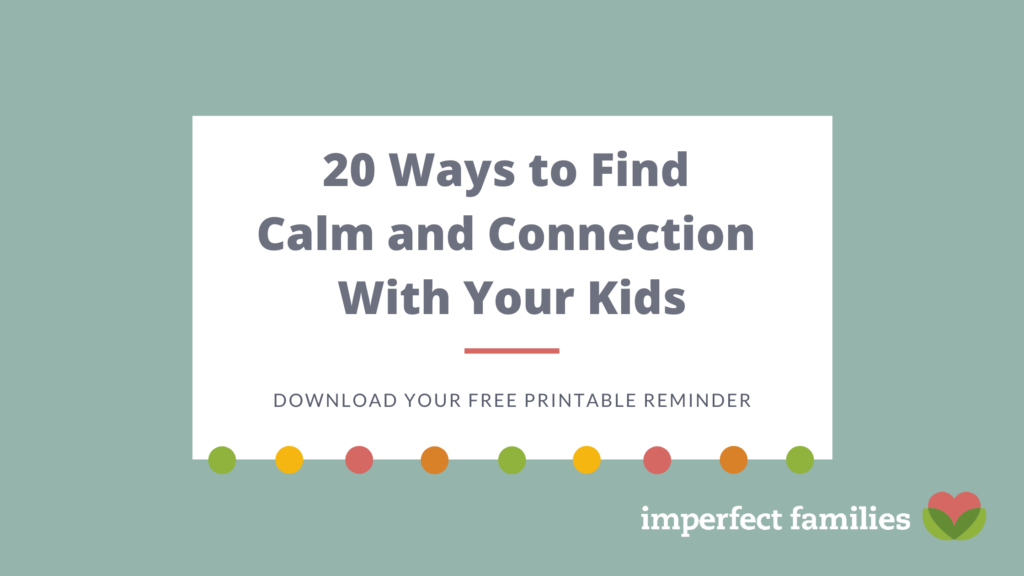Deciding to talk to kids about difficult topics can make even the most confident parent squirm.
Bombings, kidnappings, divorce, death, growing up, financial uncertainty. The list goes on.
In these moments, parenting becomes blurry and confusing. The parent who has so much to say about everything from eating healthy to good grades is suddenly speechless.
There’s a temptation to avoid difficult topics or just sweep them under the rug, hoping the kids don’t notice.
Unfortunately, kids are little detectives. They know when something is going on, they can sense the tension. They hear about it at school. They see it on TV.
Or, even worse, they ask a direct question.
Making the uncomfortable choice.
Instead of sitting around waiting for the “perfect” time to talk about a difficult topic, it’s up to you to get the conversation started.
It’s ok if your first attempt is a little…unpolished. Expect a few extra “um’s” and long pauses. Be prepared to encounter some uncomfortable responses, but also be ready for some blank stares and indifference.
Some kids take a while to digest information, some ask a million questions. And others may not seem phased at all.
The important thing is you’ve opened up the conversation. You’ve made the first step.
What to say when you don’t know what to say.
Unfortunately, there is no clear-cut, 5-step process for having conversations about difficult topics.
Your family is unique. The thoughts and beliefs you hold about why bad things happen or what happens after death will influence how you talk to your child. The reasons behind a decision or the lessons you hope to instill will vary.
Plus, each child is unique. Some children are more mature for their age, while others seem to grow up more slowly. The way you talk to a 3-year-old will be different than how you talk to a 10-year-old.
A sample script for a difficult conversation:
Keep it simple – “Grandpa had to go to the hospital last night. The doctors tried to help, but his heart was too sick, and it stopped beating. He died this morning.”
Follow up by asking –“Do you have any questions?” or “It looks like you have some questions.”
Identify an emotion – “You seem angry.” or “It’s ok to cry. This is a very sad thing.”
Reiterate truth – “Cancer is not contagious.” or “Grandpa loved you very much.”
End by saying – “If you ever have any other questions or want to talk more about this, I’m here for you.”
You do not have to hide your own emotions. If you are sad, be sad. It’s ok to say, “mom’s having a sad day today.” If you think that your child may be worried or upset by your tears, you can set a good example by saying, “Everybody gets sad sometimes. We have lots of feelings. Feelings come and go.”
Tips for difficult conversations.
- Regardless of your child’s age, it is important to reassure them that they are healthy, safe and loved. If you’re stumped for a response, repeat these phrases.
- Depending on the situation, kids may not need all of the specifics. Answer questions or address concerns that pertain to the child directly.
- Remember, your children rely on you, but you do not rely on them. Find another adult, a friend or a support group to help you process difficult emotions.
Ready to step into the blurry and confusing world of talking to kids about difficult topics?
You don’t have do say the perfect thing at the perfect time, you simply need to start the conversation. Be willing to listen and ready to respond to your child’s needs.




Comments have been turned off to retain the privacy of all families. If you have a question or comment on the topic, you're always welcome to contact me.